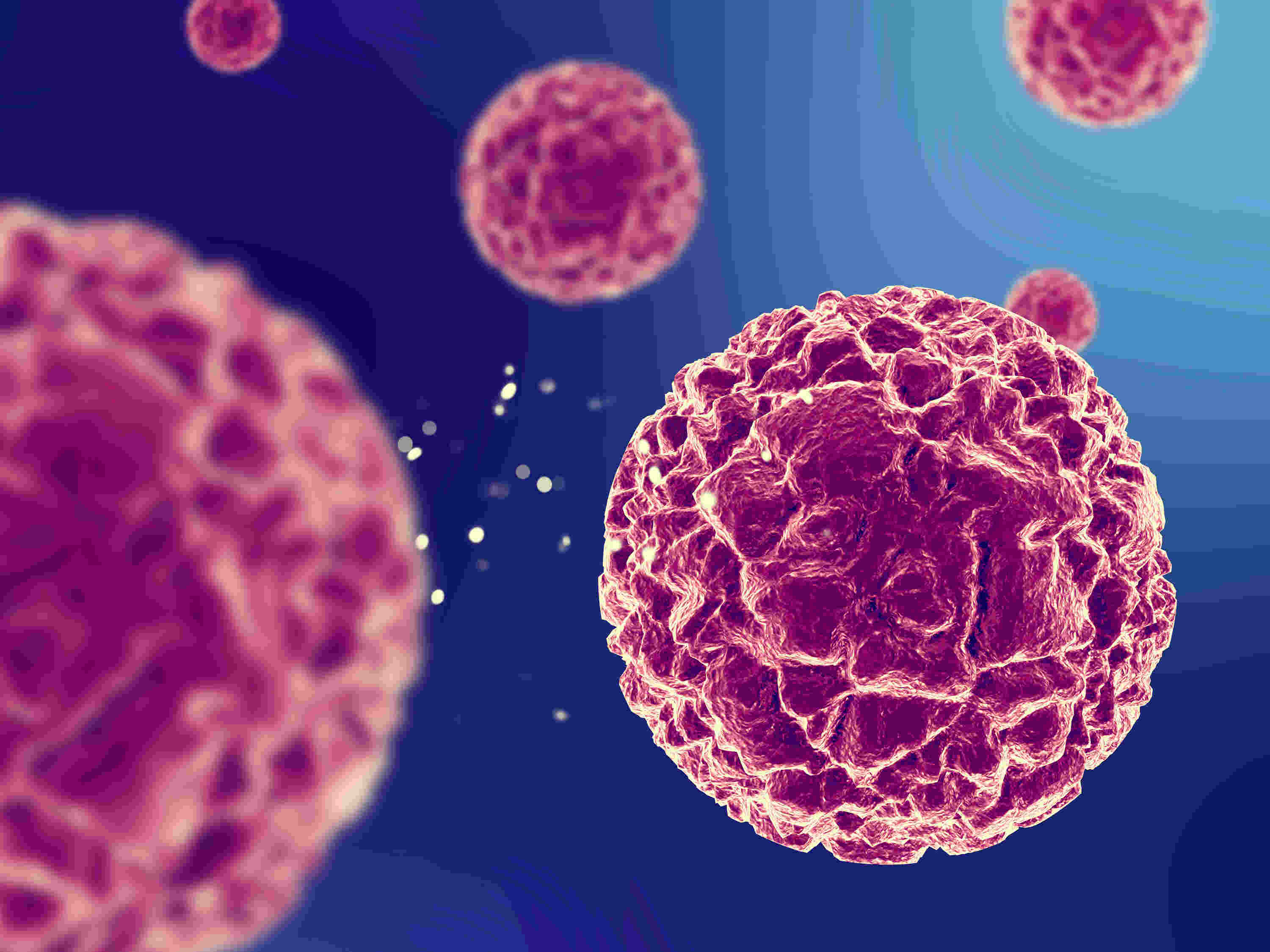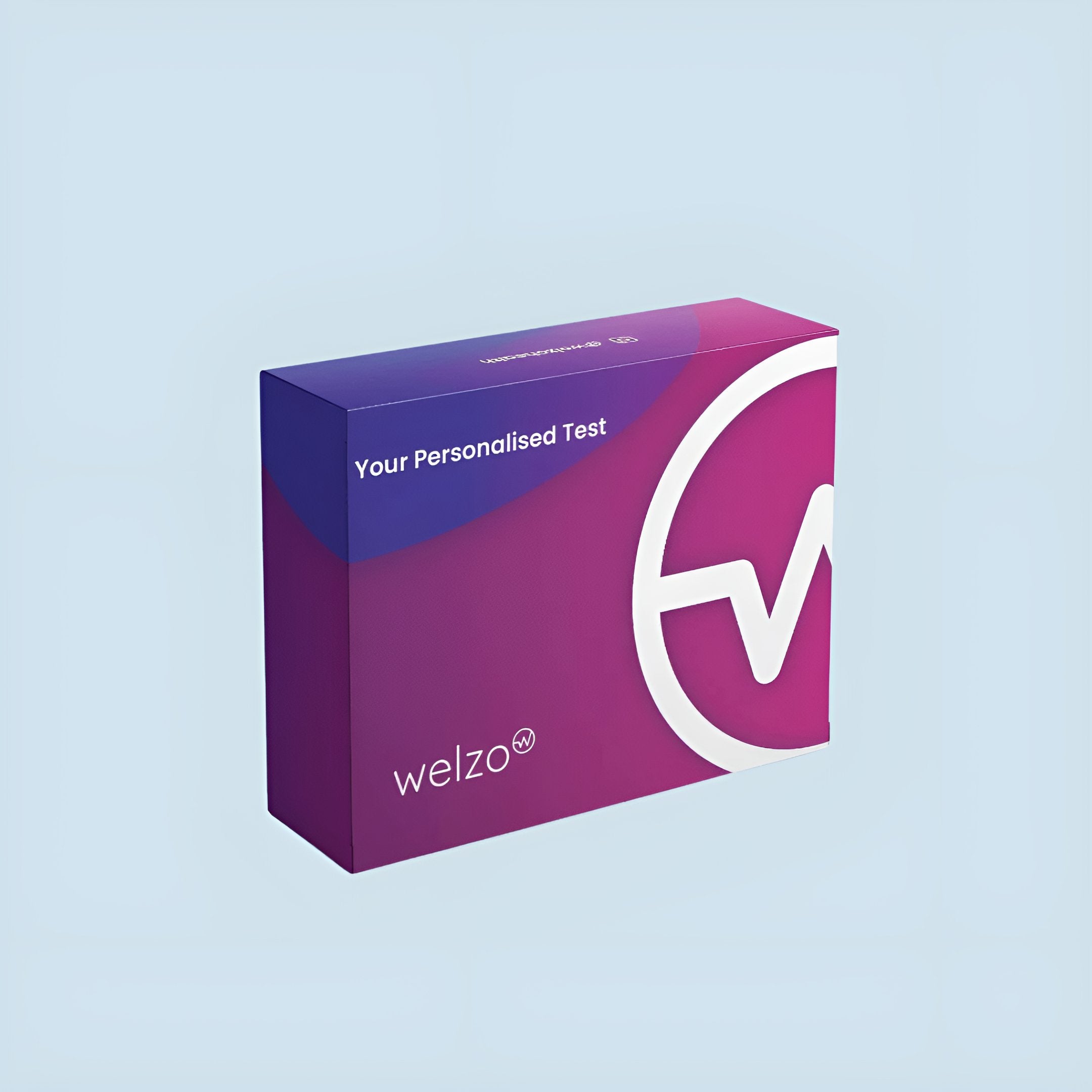Total Iron


Related products
Iron is a fundamental trace mineral required for numerous critical functions in the human body, particularly oxygen transport and red blood cell production. It is the central component of haemoglobin, the protein in red blood cells responsible for carrying oxygen from the lungs to tissues throughout the body. Without sufficient iron, the body cannot produce enough healthy red blood cells, leading to various forms of anaemia and impaired cellular function.
While iron is abundant in the Earth’s crust and available through a wide range of dietary sources, deficiencies are still common, especially among women of reproductive age, vegetarians, athletes, and individuals with chronic illnesses. The body's need for iron varies with age, gender, and physiological conditions like pregnancy or illness, making routine monitoring and personalised dietary management essential.
Welzo offers a streamlined way to manage iron health through simple home-based diagnostics. The Home Blood Tests page provides quick access to iron-related panels and other essential health tests for proactive, data-driven wellbeing.
Understanding the types of dietary iron, their absorption, and the role of iron blood tests can help individuals make more informed decisions about their nutrition and supplementation. This guide covers forms of iron, absorption influencers, deficiency symptoms, dietary strategies, and the significance of testing to maintain optimal levels.
Iron's Biological Importance in the Human Body
Iron is essential to several enzymatic and metabolic processes beyond haemoglobin formation. It is integral to the production of ATP (adenosine triphosphate), which fuels every cellular function. Iron-containing proteins are involved in electron transport, detoxification, and DNA synthesis. These functions impact not just energy and oxygen delivery, but also cognitive health and immune response.
Hormonal imbalances can sometimes mask or amplify symptoms associated with iron deficiencies. The Free Testosterone Blood Test is a useful option to assess whether overlapping symptoms like fatigue, weakness, or reduced muscle mass could be hormonally influenced, particularly in men.
Iron Deficiency: Causes, Symptoms and Risk Factors
Iron deficiency remains a global health challenge, with wide-reaching implications for both individual and public health. While menstruation and dietary patterns are the most common causes, conditions like gastrointestinal bleeding, poor diet, or malabsorption syndromes also contribute significantly.
When unexplained fatigue or paleness is persistent, broader testing panels may help differentiate nutritional deficiencies. The Ferritin Blood Test can provide a more precise view of stored iron levels in the body, helping determine if you’re truly deficient or dealing with another underlying cause.
Identifying symptoms early and correcting iron deficits with diet, supplements, or clinical interventions can prevent complications and restore overall well-being.
Iron Absorption and Dietary Influences
Iron absorption is a nuanced process, affected by food pairing, gut health, and even genetics. Non-haem iron sources (plants) are less bioavailable than haem iron sources (meat), making diet planning critical for vegetarians and vegans.
Thyroid health can influence metabolic rate and the body's ability to utilise nutrients like iron. For those with fatigue or temperature sensitivity alongside low iron, the Advanced Thyroid Function Blood Test offers deeper insight into how thyroid imbalance may be affecting iron status and energy production.
By understanding absorption inhibitors—like calcium and phytates—and enhancers—like vitamin C—individuals can tailor meal timing and food combinations to improve iron uptake.
Types of Iron Supplements and Their Uses
Iron supplements vary in form and effectiveness. Common formulations include ferrous fumarate, ferric citrate, and ferrous gluconate. Choosing the correct supplement depends on gastrointestinal tolerance, medical history, and the severity of the deficiency.
For individuals also concerned with liver-related metabolism, particularly those with multiple deficiencies or on medication, the Bilirubin Blood Test can offer insight into how well the liver is managing by-products of iron and red blood cell breakdown.
Chelated iron supplements are often easier on the stomach and may suit those with chronic GI inflammation or sensitive digestion. A healthcare provider can help guide the appropriate dosage and type based on clinical tests and medical history.
Iron Overload: Risks, Causes and Monitoring
Although less common than deficiency, iron overload is equally critical to address. Hereditary haemochromatosis is a major cause and leads to iron accumulation in vital organs, triggering complications like cirrhosis or cardiomyopathy if left untreated.
For those tracking fitness levels or at risk of cardiovascular strain due to high iron or cholesterol, the Cholesterol Blood Test is a valuable addition. It provides insight into lipid levels, which may be affected by iron-related metabolic issues.
Managing iron overload may involve reducing dietary iron, therapeutic phlebotomy, or chelation therapy. Regular monitoring ensures safety when using long-term supplementation or if a genetic predisposition exists.
The Role of Iron Testing in Personalised Healthcare
Blood tests are essential in iron health management. The standard iron panel includes serum iron, ferritin, transferrin saturation, and total iron-binding capacity (TIBC). These help clinicians differentiate between iron deficiency anaemia, chronic disease anaemia, and iron overload.
In women with fertility concerns or irregular cycles linked to low iron, testing reproductive markers can help build a broader picture. The AMH Blood Test supports assessments of ovarian reserve, often impacted by nutritional deficiencies and systemic stress.
A tailored testing approach helps uncover hidden deficiencies or excesses and ensures supplementation decisions are data-driven rather than based solely on symptoms.
Supporting Athletic and Physical Health with Iron
Athletes place greater physical demands on their bodies, often increasing iron turnover through sweat, gastrointestinal microbleeds, and higher red blood cell production. Endurance athletes, in particular, may struggle to maintain adequate iron despite a healthy diet.
For active individuals aiming to optimise performance and prevent depletion, Welzo’s Sports Performance Tests Collection offers kits to assess iron, hormone levels, and nutrient markers relevant to recovery and endurance.
Integrating regular testing with sports nutrition allows for smarter training and fewer injuries due to overlooked deficiencies.
Nutrient Interactions: Intolerances, Deficiencies and Absorption Challenges
Beyond iron, nutrient absorption can be hindered by food intolerances or inflammatory gut conditions. If digestive health is impaired, even iron-rich diets may prove ineffective. Over time, this can compound into broader nutrient depletion and immune dysregulation.
The Intolerance Tests Collection includes testing kits that evaluate reactions to common food allergens, allowing for the identification of diet-related issues that may be blocking nutrient uptake.
Addressing these underlying factors ensures that iron and other key nutrients are effectively absorbed and utilised by the body.
Conclusion: Striking the Right Balance with Iron
Iron is central to nearly every vital system—energy, blood oxygenation, immune response, cognitive health, and muscle strength. Both deficiency and excess carry risks, requiring a balanced approach that combines awareness, testing, and nutritional care.
Modern tools make iron management more accessible than ever. The All Health Tests Collection by Welzo provides curated diagnostic kits to monitor a range of systems—including iron—helping you stay proactive about your health from the comfort of home.
Ultimately, good iron health isn’t about guesswork—it’s about data, lifestyle alignment, and ongoing evaluation. Whether you’re an athlete, a parent, or managing a medical condition, staying informed and engaged with your iron status can make a profound difference in how you feel, perform, and age.

































 Rated Excellent by 26,523+ Reviews
Rated Excellent by 26,523+ Reviews